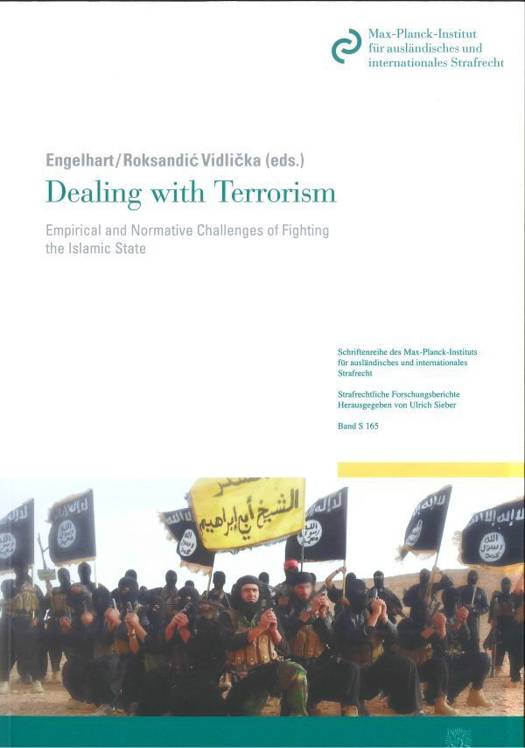
Bedankt voor het vertrouwen het afgelopen jaar! Om jou te bedanken bieden we GRATIS verzending (in België) aan op alles gedurende de hele maand januari.
- Afhalen na 1 uur in een winkel met voorraad
- In januari gratis thuislevering in België
- Ruim aanbod met 7 miljoen producten
Bedankt voor het vertrouwen het afgelopen jaar! Om jou te bedanken bieden we GRATIS verzending (in België) aan op alles gedurende de hele maand januari.
- Afhalen na 1 uur in een winkel met voorraad
- In januari gratis thuislevering in België
- Ruim aanbod met 7 miljoen producten
Zoeken
Dealing with Terrorism
Empirical and Normative Challenges of Fighting the Islamic State
€ 76,45
+ 152 punten
Omschrijving
The events surrounding the terrorist group officially known as the Islamic State (IS) have galvanized anti-terrorist efforts far beyond the first reactions after September 11, 2001, and led to varying state responses, especially in Europe, e.g., in addressing the phenomenon of foreign fighters. In "Dealing with Terrorism - Empirical and Normative Challenges for Fighting the Islamic State" an international panel of experts analyses current trends and new developments in legal systems and in law enforcement in Europe as well as in the USA and the Middle East. Offering a succinct overview with special focus on criminal law, police law, and European and international law, the book provides unique insights into what dealing with terrorism means to European and non-European countries. It includes material from non-English-speaking countries that is seldom available to a broader academic community. Its comparative approach offers readers three levels of understanding: by country, in terms of the European Union, and the international community as a whole. The book is geared at specialists in national and international institutions, scholars, and students in the field but will also be of great interest to the wider legal community. Its profound insights and expert perspectives enhance the ongoing national and international debate on public security issues by striking a balance between freedom and security.
Specificaties
Betrokkenen
- Uitgeverij:
Inhoud
- Aantal bladzijden:
- 310
- Taal:
- Engels
- Reeks:
- Reeksnummer:
- nr. 165
Eigenschappen
- Productcode (EAN):
- 9783428157990
- Verschijningsdatum:
- 31/07/2019
- Uitvoering:
- Paperback
- Formaat:
- Trade paperback (VS)
- Afmetingen:
- 147 mm x 224 mm
- Gewicht:
- 7928 g

Alleen bij Standaard Boekhandel
+ 152 punten op je klantenkaart van Standaard Boekhandel
Beoordelingen
We publiceren alleen reviews die voldoen aan de voorwaarden voor reviews. Bekijk onze voorwaarden voor reviews.








